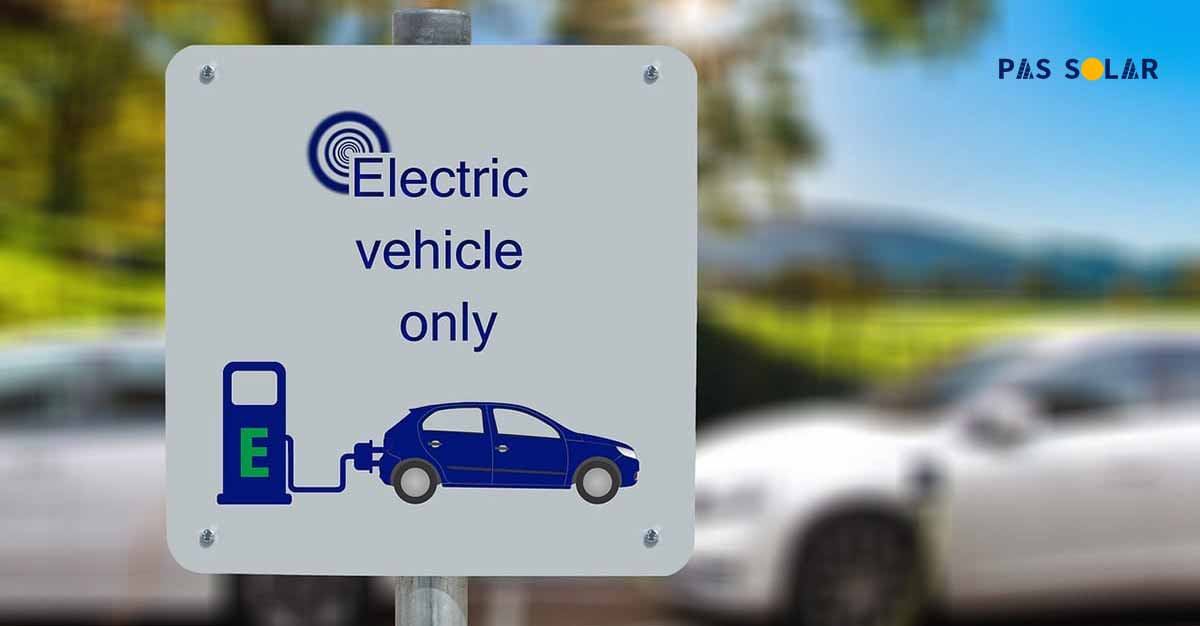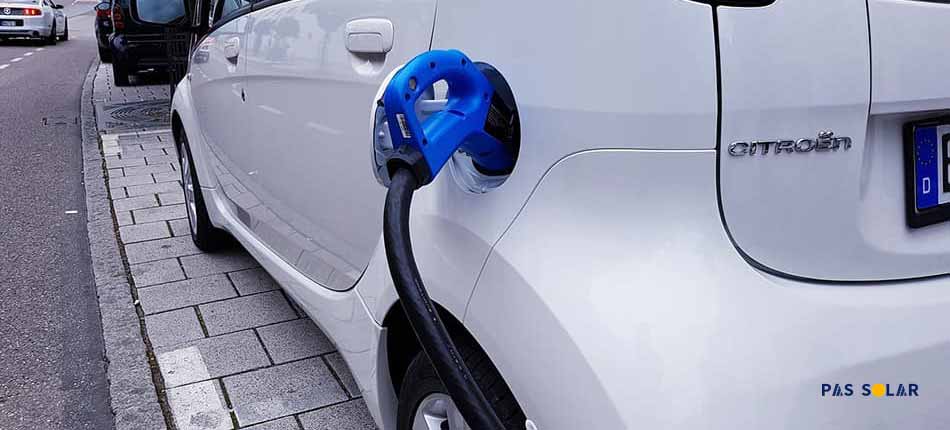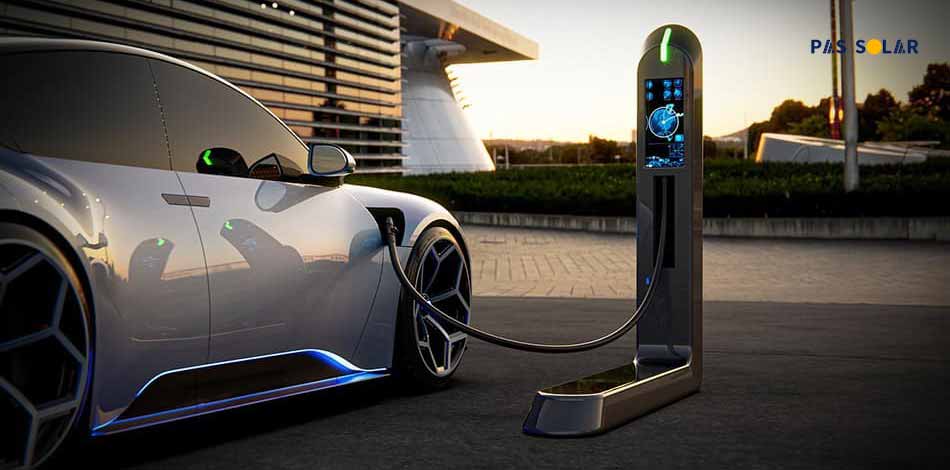Those who charge an electric car with solar panels can save money in the long run. Here’s everything you need to know about charging your electric car with solar panels.
Electric cars are favored for their reduced environmental impact compared to cars with combustion engines. One of its main benefits is that they have no engine or exhaust, so no toxic emissions are produced while driving, but you’d have to charge an electric car with solar panels. The electricity used to charge and run the electric car can still pollute indirectly if it comes from an environmentally unfriendly source, but how can you make sure that your car’s power is generated from a renewable source like electricity? Now the question becomes, how can solar panels charge an electric vehicle?
If you don’t charge your electric car with solar and instead use the national grid, some of that electricity may have been generated using fossil fuels. While the government is trying to reduce the National Grid’s reliance on fossil fuels, gas and coal are still needed to generate enough electricity for the nation.
If you’re determined to take matters into your own hands and generate emission-free power for your electric or plug-in hybrid car, you can ensure that the electricity used for charging an electric car with solar comes from renewable sources at a specified rate, or you can generate your power once. The way to do the latter is to build your own solar-powered electric vehicle charging station and charge the electric vehicle with solar panels. You can reduce the cost of the whole project if you buy your solar panel for sale in UAE.
Are solar panels enough to charge an electric car?
Installing solar panels on the roof of your house is a great way to generate power so that you can charge an electric car with solar panels. The size of the car battery determines how many solar panels would it take to charge an electric car, but typically about 10 panels should generate enough electricity to charge a car with an average-size battery.
It’s important to remember that solar panels cannot store electricity on their own, which means that whatever the panels generate must be immediately used by plugged-in devices in the home, or else it will be fed back into the grid.
Also, visit RR kabel solar cable in UAE price in our website.
Do I need to have a smart electric vehicle charging station if I want to charge an electric car with solar panels?
You may be wondering; can you use the power you generated from your solar panels to charge your car? The answer is a bit more complicated than simply plugging your EV charging station into solar panels.
The problem is that the power generated by a photovoltaic panel is uneven and highly variable, and cannot be fed directly into an electric vehicle’s battery (or into the power grid).
In either case, any solar panel installation needs to have an inverter which can be bought from a solar panel inverters distributor in UAE so that the electricity can be fed into the electrical grid at home and used to power appliances or charge your car.
While it is not necessary to have a smart charging station to use electricity from solar panels, it can be a great help in managing the charging process and managing how much energy from your solar panels is used to recharge your electric car. The charging station also affects how long does it take to charge an electric car with solar panels.
For example, with a smart charging station, you can choose to charge an electric car with solar panels only when your solar panels produce electricity. The charging station, in combination with a power management system, can forecast when is the best time to charge. This ensures the use of the energy you generate and guarantees that it is produced sustainably, avoiding having to buy electricity from the grid.
Building a solar electric car charging station
Fortunately, there is additional equipment that can help you make the most of the electricity generated by solar panels. Solar energy can be stored in a solar battery, which is a device offered by several providers, including e.on, EDF, Moixa, and Tesla. The benefit of a battery system is that any excess energy from your solar panels can be stored and used to power your electric home or car when the panels are not producing a charge overnight. Otherwise, the solar modules will only charge your EV during the day.
To efficiently charge an electric car with solar panels, you’ll also need to install a home charging unit and a photovoltaic inverter unit that converts solar power to DC for the vehicle. There are already several of these systems available for purchase, some of which combine these two elements in a single unit. However, there is no standalone solar charging system available, instead, it must be integrated with the rest of your home power supply system.
A 1kW system is estimated to generate 850 kWh of power per year: that could fully charge a Honda e roughly 24 times in 12 months, which translates to about 3,250 miles of range. If your yearly mileage is not too high, solar panels can be a reasonable long-term option. Our customers keep asking us, “how many solar panels to charge an electric car?” To answer that, we should point out that the typicall home solar panel system does not generate enough electricity in one day to fully charge an electric car.
How long does it take to charge an electric car with solar panels?
This depends on the amount of sunlight and the type of panels on your roof, as well as the type of wall socket you have. On a sunny day, roof panels can generate more than 40 kWh of electricity, enough to charge a car’s 40 kWh battery.
Most electric car charging at home happens at night, when there is no sun to generate free electricity. That’s why it’s worth considering installing a home battery system, like a Tesla Powerwall, to store solar power to charge an electric car with solar power.





